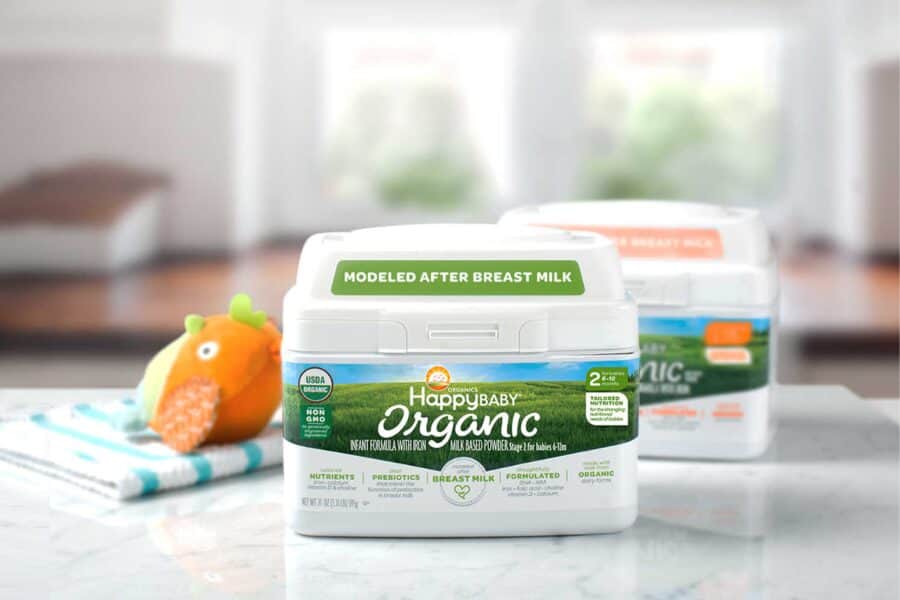A chicken’s diet might seem simple. Grains, grass, and table scraps, right? However, their nutritional needs are complex and ever-evolving under human domestication. While most hen farmers and chicken cultivators have straightened out their coop and pen upkeep, their diets remain a mystery.
This is why millions of people head to Google every year with questions like: Can chickens eat bananas? Can chickens eat celery?
The next question is: Can chickens eat oranges? If they can, how do we ensure they’re getting the right nutrients while maintaining sustainable chicken-keeping practices?
You see, chickens, like other birds, are omnivores. They can eat both plants and animals. To stay healthy, they need a balanced diet with various nutrients. We’ve settled on vegetables and grains for chickens. But what about other food groups with a rather complicated nutritional profile?
In this article, we’ll answer the question about including oranges in a chicken’s diet. We’ll also include the perks and precautions of feeding oranges to chickens and discuss which fruits chickens can’t eat. This way, you can make informed decisions about what, when, and how to feed your flock to keep them healthy.
Let’s begin with the question of the hour: Can chickens eat oranges?
Can Chickens Eat Oranges?

To answer the question: Yes. You can give oranges to your chicken. But it’s crucial to consider the potential benefits and limitations of feeding them.
Chickens can’t eat onions, but they can have a slice or two of the humble orange. This fruit is packed with essential nutrients like folate, magnesium, and potassium, which can improve chicken health and growth. However, it’s essential to balance their diet with other nutrient sources and avoid overfeeding, which can lead to health issues.
A study conducted by Abd El Latif et al. (2010) on broiler chickens found that feeding orange peel meal (a byproduct of orange juice production) improved growth performance and feed efficiency. The study suggests that oranges can be a beneficial addition to a chicken’s diet when fed in moderation and as part of a balanced diet.
So, while oranges can be a tasty treat for your chickens, it’s important to remember that they should be fed in moderation and as part of a well-rounded diet that includes a variety of other nutrient-rich foods.
Let’s look into some of the nutritional benefits of feeding oranges to chickens to answer the question, are oranges safe for chickens in moderation?
Nutritional Benefits of Oranges for Chickens

Oranges are a rich source of various nutrients that can benefit chicken health. Which affirms the studies that chickens can eat oranges safely. Here are some of the key nutritional benefits:
- Folate (vitamin B) helps with blood formation, healthy feathers, and size.
- Magnesium supports bone strength and development, cellular metabolism, heart health, and muscle function.
- Potassium helps with temperature control, hydration and electrolyte regulation, metabolism, and heart health.
- Vitamin C boosts immune function, supports collagen production, and enhances overall health.
- Antioxidants reduce oxidative stress, improve overall health, and support immune function.
Oranges are particularly rich in vitamin C, which is an essential nutrient for chickens. While chickens can synthesize vitamin C, supplementing their diet in moderation with oranges can provide additional benefits, especially during times of stress or illness.
Also Read: Can Chickens Eat Pineapples?
How Does Orange Affect Chickens?

Oranges can improve chicken growth performance by helping them gain weight and improve feed conversion ratio. They can also enhance digestive health by improving nutrient digestibility and reducing abdominal fat. Additionally, oranges contain antioxidants that can help reduce oxidative stress and improve overall chicken health.
By incorporating oranges into their diet, chickens can benefit from the improved growth performance, digestive health, and reduced oxidative stress that these fruits provide. However, it’s important to remember that oranges should be fed in moderation as part of a balanced diet.
Now, another question that concerns most poultry owners is: what food is good for chickens, and can chickens eat oranges as a whole? To understand that, you must learn about the right quantity and way to feed them.
Can Chickens Eat Oranges? Understanding The Recommended Serving Size and Frequency
Can chickens eat whole oranges? Follow these guidelines while feeding whole or part of an orange to chickens:
- Serving Size: Half a slice to 1 slice per chicken is plenty due to the high sugar content.
- Frequency: Limit oranges to 1 to 3 times a week to avoid overfeeding and potential health issues.
- Balance with Other Nutrients: Ensure that oranges are not the only source of nutrients in your chicken’s diet. Balance with other nutrient-rich foods like grains, vegetables, and other fruits.
So, can chickens eat oranges? Well yes! But, oranges are high in natural sugars, so it’s important to limit their consumption to prevent digestive issues and other health problems.
Mixing orange peel meal or chopped oranges with other feed ingredients can help ensure that chickens receive a balanced diet.
By following these guidelines and limiting the serving size and frequency of oranges, you can ensure that your chickens enjoy the benefits of these fruits without risking their health due to overconsumption of sugar or imbalanced nutrition.
Now, there is a possibility that you overfed the chickens. It’s natural to do so out of love and the joy of seeing them pecking here and there. But you shouldn’t, and here’s why.
Are Oranges Safe for Chickens? Potential Risks of Overfeeding Oranges
Oranges are generally safe for chickens in moderation, but overfeeding can pose risks.
High sugar intake: Excessive consumption of oranges can lead to a high sugar intake, which is not ideal for chickens’ health. Their digestive systems are not designed to handle large amounts of sugar, potentially leading to various health issues.
Diarrhea: Overfeeding oranges to chickens causes digestive upset. Chickens may experience diarrhea or stomach discomfort due to the high acidity and sugar content of oranges. This can disrupt their normal digestion and nutrient absorption, ultimately affecting their overall health and productivity.
Irritation in the digestive tract: Furthermore, the high acidity of oranges can irritate a chicken’s digestive tract. Over time, this may lead to more serious conditions, such as ulcers or other gastrointestinal problems. It is important to limit the amount of acidic fruit in their diet to protect their digestive health.
Dietary imbalance: Lastly, overfeeding oranges can result in a lack of dietary balance. Chickens require a variety of nutrients from grains, vegetables, and proteins to maintain optimal health. Relying too heavily on oranges can displace other essential components of their diet, leading to nutritional deficiencies and related health problems.
It’s important to remember that while oranges can be a tasty treat, they should be fed in moderation so that chickens can eat oranges safely. Overfeeding can lead to serious health problems, so it’s crucial to stick to the recommended serving sizes and frequencies to keep your chickens healthy and happy.
So, what are the few rules a chick parent should never disobey to maintain a chicken’s health and ensure sustainable chicken keeping?
Best Practices for Feeding Oranges to Chickens

To ensure the safe and healthy consumption of oranges by chickens, follow these best practices:
- Peel the Oranges: Remove the peel to eliminate potential pesticide residue and wax.
- Cut into Wedges: Cut the orange into wedges and then cut each wedge in half to make it easier for chickens to eat.
- Monitor Consumption: Keep an eye on how much your chickens eat and avoid overfeeding.
- Store Properly: Store any leftover oranges in a secure location to prevent attracting pests.
- Ensure Freshness: Only feed fresh oranges to your chickens to avoid potential contamination and spoilage.
You can hang the feed in small quantities in the coop or you can spread it across the pen to let your birds peck while strolling. Both work fine.
However, make sure that the oranges are fresh, organic, and free from pesticides and wax. Avoid feeding spoiled oranges or feed to avoid illness. Also, there are enough feed packs for each of the chickens to prevent bullying and ensure uniform distribution of food among the chickens.
By following these best practices, you can ensure that your chickens enjoy the benefits of oranges while minimizing any potential risks associated with feeding them.
Hopefully, your question, “Can chickens eat oranges?” has got some answers up to this point. Now, Ecowiser would like to bring your attention to why it’s important to adopt more sustainable practices like farming backyard chickens.
Backyard Chickens: A Sustainable Choice for Urban Living

Backyard chickens are an excellent addition to a sustainable lifestyle. They provide fresh, organic eggs, which reduces the need for store-bought options and lowers your carbon footprint.
Chickens help with natural pest control by eating insects and weeds, which can reduce the need for chemical pesticides. They also contribute to waste reduction by eating kitchen scraps, turning what would be trash into valuable food.
Additionally, chicken manure is a fantastic natural fertilizer for gardens, enhancing soil health without synthetic chemicals. Raising backyard chickens not only supports a more self-sufficient and eco-friendly way of living but also connects us more closely to the food we consume.
Overall, having chicks in the backyard is great! Isn’t it?
Summing Up!
In conclusion, oranges can be a nutritious addition to a chicken’s diet when fed in moderation. Ecowiser recommends that you follow best practices to ensure the safety and optimal consumption of high-fructose fruits like oranges.
By incorporating oranges into your chicken’s diet responsibly, you can provide them with essential nutrients and support their overall health and well-being.
It must also be noted that while oranges can be a great treat for your chickens, they should always be fed as part of a balanced diet that includes a variety of other nutrient-rich foods. By following the guidelines and best practices outlined in this article, you can ensure that your chickens enjoy the benefits of oranges while staying healthy and happy.
Frequently Asked Questions (FAQs)
1. Can chickens eat oranges?
Yes, chickens can eat oranges. But it’s important to give them only a small amount because oranges have a lot of sugar. Always peel the oranges first to remove any chemicals or wax, and cut them into pieces that are easy for chickens to eat.
2. Are there any fruits that chickens shouldn’t eat?
Yes, chickens should not eat onions or apple seeds. These can make chickens sick. Onions have a chemical that can cause anemia in chickens. Apple seeds have a substance that can release poison when chickens digest it, which can be dangerous.
3. Can chickens eat orange peels and seeds?
Chickens can eat orange peels, but the peels should be free from chemicals and wax. The peels are tough and can be used as toys for chickens instead of food.
4. Do chickens eat bananas?
Yes, chickens can eat bananas. Bananas are a healthy and tasty treat for chickens. They have important vitamins and minerals. But make sure to remove any seeds or stems, as they can cause digestive problems for chickens.
5. Which fruits chickens can’t eat?
When it comes to feeding chickens, it’s important to avoid certain fruits that can be harmful to their health. Avocado should be avoided entirely, as its skin, pit, and flesh contain persin, a toxin for chickens. Citrus fruits can also pose problems if consumed excessively, potentially leading to digestive issues. Similarly, rhubarb leaves contain oxalic acid, which is toxic to chickens. Additionally, stone fruit pits, like those found in peaches, plums, and cherries, contain amygdalin, which can convert to cyanide in the body, making them unsafe for chickens to eat.








